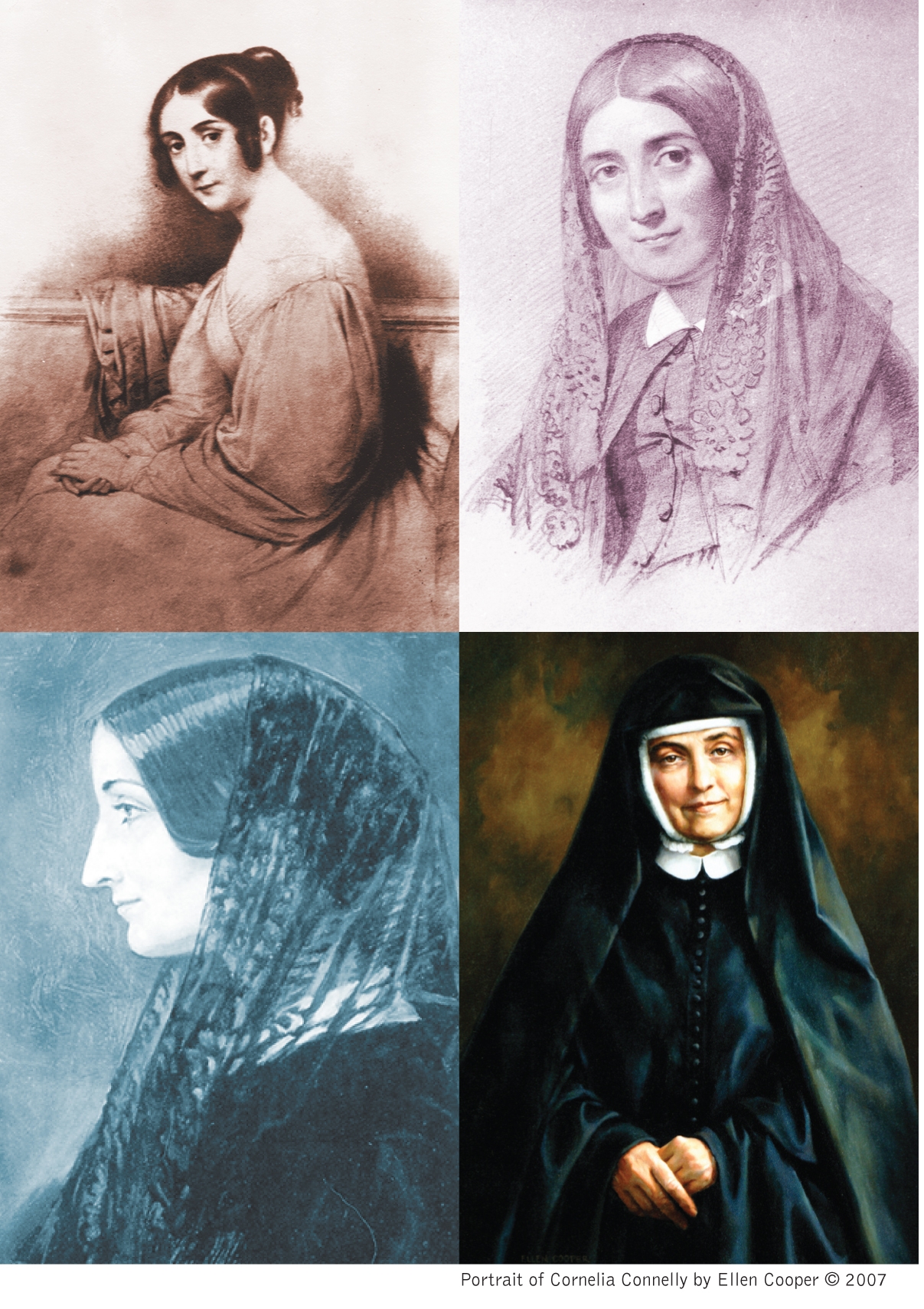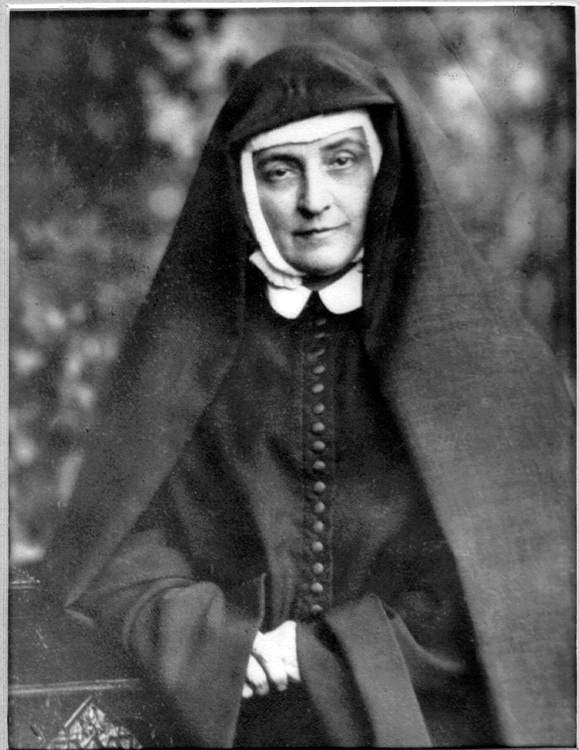By Judith Lancaster, SHCJ
It has often been said that Cornelia Connelly’s life has all the makings of a Hollywood blockbuster: sex, religion, nuns, bishops, abducted children, a wife threatened with kidnap by her estranged husband, salacious court proceedings, high profile media interest… Even in sober reality, her life was undeniably dramatic and controversial; strong feelings, both for and against her, are still aroused whenever the story is recounted.
(Find out more about her in the online Cornelia Connelly Library. View a complete timeline of her life by clicking here and read about her story here and here.)

But what is really important about Cornelia is not so much what happened to her as what she learned from her experiences, what she did with them, how she grew through them so that she had something worthwhile to offer to others. Arguably, the most important lesson she learned and shared with others was how to find God in the ordinary events of daily life – the joys and sorrows, the successes and failures – and how to respond faithfully to what God seems to be asking.
In 1846 Cornelia, an American convert to Catholicism and mother of five children, whose husband had recently been ordained a priest in Rome, founded the Society of the Holy Child Jesus in Derby. She was far from being a run of the mill founder of a religious congregation: as Archbishop Ullathorne drily remarked, ‘Rose water will not do with her.’
Cornelia established schools and, as it turned out, her educational methods were not run of the mill, either. The schools were, thankfully, more rigorously academic than most girls schools of the period. But Cornelia was interested in a good deal more than exam results. At the heart of Holy Child education, rooted in Cornelia’s understanding of the Incarnation, was reverence and respect for each student. Trusting her own experience as a mother, and with a surprising grasp of the psychology of adolescence, Cornelia stressed the importance of happiness at school. (Art and theatricals, swimming in the sea, playing cards, learning to waltz, running about in the fresh air were all regular features of school life.) Cornelia’s aim was to discover and develop potential, to enable the students to become themselves. Encouragement, she told the nuns, was more effective than punishment: they were to turn a blind eye to misdemeanours as far as possible.

Cornelia was, above all, passionate, a woman of zeal and enthusiasm; she took risks and made mistakes. Her vision and desire was to enable others to grow strong in faith and live fully human lives.


Bravo! Very well done. Beautiful, informative and easy to read. I am proud and happy to be one of her children. Keep up the good job.
Well done Judith, This is beautifully done. an interesting read indeed. thanks too to all the contributors . Irene Ekeng,
What a good idea – well done and thank you
What an interesting story told! Thank you for presenting the story this way. It brings out what is more attractive, informative and inspiring in Cornelian.
This is fantastic! So thrilling to watch the video clips & read Cornelia story again. Thanks a million to the producers.
Thank you, Judith and all who have worked on this. I loved reading it on Corrnelia’s birthday. Mel
What a beautiful way to celebrate Cornelia’s 207th birthday! Thank you for imagining and creating this resource with its many faceted parts. I love seeing how Cornelia is known around the world – to see how she is cosmopolitan today. I look forward to what will follow.
Thanks for this — it’s attractive and readable — well done, contributors and editors!
Thank you. This new approach is fresh, accessible and informative. Timely today as well.